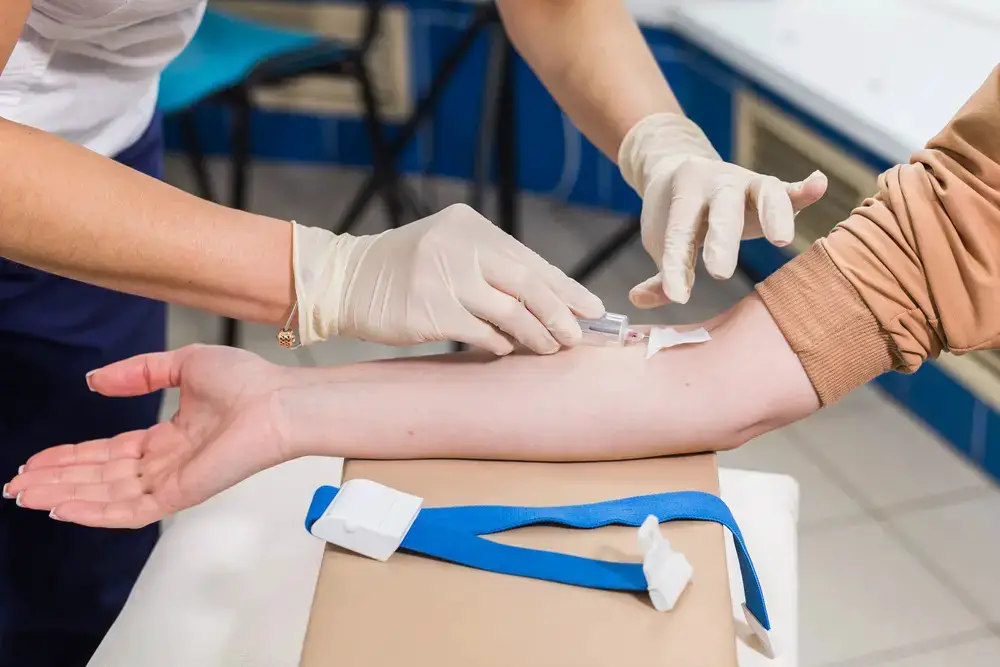Understanding Causes for Low Hemoglobin in Males and Females
Low hemoglobin levels, commonly referred to as anemia, can significantly affect your overall health, leading to symptoms like fatigue, dizziness, and weakness. Hemoglobin, a vital protein found in red blood cells (RBCs), plays a crucial role in transporting oxygen throughout the body. Without adequate hemoglobin, your organs and tissues struggle to function optimally.
If you’re experiencing symptoms of low hemoglobin or suspect an underlying issue, visiting a healthcare provider, such as an urgent care clinic near you , can help diagnose and treat the condition effectively. Let’s explore the causes, symptoms, and treatments for low hemoglobin levels in men and women while addressing common questions people often ask about this essential health marker.
What Is Hemoglobin and Why Is It Important?
Hemoglobin is the oxygen carrier in your bloodstream, responsible for transporting oxygen from your lungs to your body’s tissues and removing carbon dioxide. Its normal levels are critical for maintaining energy, immunity, and overall wellness.
When hemoglobin levels fall below the normal range—13.5-17.5 g/dL for males and 12.0-15.5 g/dL for women—it can lead to a range of health complications. Factors such as diet, chronic medical conditions, and lifestyle choices often contribute to these changes.
Low Hemoglobin Causes in Men
For men, maintaining healthy hemoglobin levels is vital for strength, stamina, and overall vitality. Below are the most common causes of low hemoglobin in males:
Iron deficiency
Iron is essential for producing red blood cells and hemoglobin. Men with poor dietary habits or conditions like ulcers, gastrointestinal bleeding, or frequent blood donations may develop iron deficiency.
Chronic illnesses
Diseases such as chronic kidney disease, diabetes, or cancer can impair red blood cell production. Inflammation from these conditions also reduces the body’s ability to absorb iron.
Excessive alcohol consumption
Excessive alcohol intake suppresses bone marrow activity, reducing the production of RBCs and hemoglobin.
Testosterone Deficit
Testosterone helps stimulate red blood cell production. Men with low testosterone may experience lower hemoglobin levels.

Causes of Anemia in Women
Women are more prone to anemia due to unique physiological and hormonal factors. Here are the primary causes of low hemoglobin in females:
Menstrual Blood Loss
Heavy menstrual bleeding (menorrhagia) is a significant cause of iron deficiency in women, as it depletes iron stores over time.
Pregnancy
During pregnancy, a woman’s blood volume increases, requiring higher hemoglobin levels to support both the mother and fetus. Insufficient dietary iron or prenatal vitamins can lead to anemia.
Dietary Deficits
Women on vegetarian or vegan diets are at higher risk of iron, vitamin B12, and folic acid deficiencies, all of which are essential for hemoglobin production.
Thyroid disorders
Conditions such as hypothyroidism can reduce red blood cell production, leading to anemia.
The Role of Nutrition and Lifestyle in Hemoglobin Levels
Your everyday behaviors and food have a significant influence on hemoglobin levels. Consuming iron-rich foods such as spinach, lentils, as well as lean meats can help avoid deficiencies. Pairing them with vitamin C-rich meals improves iron absorption. On the other hand, some lifestyle choices, such as smoking or excessive coffee use, might impair iron absorption. Maintaining a balanced diet and being active are critical factors in achieving healthy hemoglobin concentrations.
Symptoms of Low Hemoglobin
Low hemoglobin levels can cause noticeable symptoms that often prompt individuals to seek medical attention. Common signs include:
- Persistent fatigue and weakness
- Pale skin or a yellowish tinge
- Shortness of breath, even with mild exertion
- Dizziness or lightheadedness
- Cold hands and feet
These symptoms may vary in severity depending on how low hemoglobin levels are and whether an underlying medical condition is present.
Medical Conditions That Impact Hemoglobin Levels
Certain diseases have a direct effect on hemoglobin production. This includes:
- Chronic Diseases – Long-term health issues such as diabetes or rheumatoid arthritis can impair bone marrow activity, resulting in low hemoglobin.
- Genetic Disorders – Some medical conditions, for instance, thalassemia and sickle cell anemia, are hereditary and have a considerable influence on hemoglobin production.
- Gastrointestinal Disorders – Diseases such as celiac disease as well as Crohn’s disease reduce nutritional absorption, resulting in shortages.
Prevention and Treatment Options
The good news is that low hemoglobin levels can be managed with the proper technique. Here are a few actionable steps:
- Eat a balanced diet – Foods rich in iron (e.g., spinach, lentils, lean meats) and vitamin B12 promote hemoglobin synthesis. Pairing these with vitamin C (from citrus fruits or peppers) can enhance iron absorption.
- Lifestyle: Smoking, excessive caffeine intake, and lack of physical activity can negatively impact hemoglobin production.
- Take Supplements if necessary – Iron supplements, when prescribed by a doctor, can rapidly restore hemoglobin levels.
- Address the underlying conditions – Treating conditions such as thyroid abnormalities or chronic inflammation can assist to resolve the low hemoglobin causes.
- Regular Check-Ups – Regular blood testing can help men and women monitor their hemoglobin levels and provide early intervention if necessary.
Ending on a Healthy Note
Hemoglobin is more than simply a number on a blood test; it is a key component of your overall health. Understanding its significance and addressing the reasons for low hemoglobin levels early will help avert serious problems. Every step toward improved health is important, whether it’s altering your nutrition, managing a medical condition, or seeking expert advice.
If you are feeling poorly or believe you have low hemoglobin levels, go to Surf Side Urgent Care of Laguna Beach. Our medical professionals are here to help you restore your energy and vigor.


